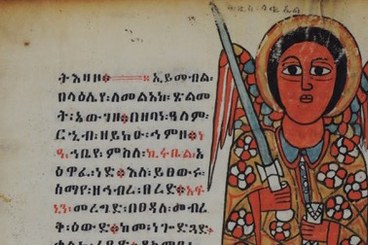In the second ENCODE Project Conference experts will share their experience on Linked Open Data, its implementation within and out of the academic world.

Date: 25 MAY 2021 from 14:00 to 18:00
Event location: Universität Hamburg
Type: Multiplier events
25th May 2021, 14.00–18.00 (CET)
In the second ENCODE Project Conference experts will share their experience on Linked Open Data, its implementation within and out of the academic world.
Date and Time: 25th May 2021, 14.00–18.00 (CET)
Type: Open conference
Place: Zoom
Organiser: Daria Elagina (Universität Hamburg)
Host: Hiob Ludolf Centre for Ethiopian and Eritrean Studies, Universität Hamburg
Guest Speakers: David Michelson (Vanderbilt University), Jonathan Prag (University of Oxford), Matteo Romanello (Université de Lausanne), James Walters (Hill Museum and Manuscript Library)
Preliminary Conference Programme:
Tuesday, 25 May 2021, 14.00–18.00 CET
14.00 Welcome, Daria Elagina (Universität Hamburg)
14.10 ENCODE and the Modelling of Vocabulary of Digital Competences, Daria Elagina (Universität Hamburg)
14.40 Building a LOD Knowledge Base of Classical Authors and Works, Matteo Romanello (Université de Lausanne)
15.10 Virtual Coffee Break
15.20 LOD and Digital Epigraphy, Jonathan Prag (University of Oxford)
15.50 Linked Open Text Encoding: Serializing LOD from Syriac Datasets in TEI XML, David Michelson (Vanderbilt University), James Walters (Hill Museum and Manuscript Library)
16.20 Virtual Coffee Break
16.30 Round Table Using LOD for Cultural Heritage within and out of the Academic World
Chair: Tom Gheldof (Katholieke Universiteit Leuven)
Participants: Federico Aurora (Universitetsbiblioteket i Oslo), Alessandro Mosca (Libera Università di Bolzano), Elton Barker (The Open University), Nathan Gibson (Ludwig-Maximilians-Universität München)
The training will introduce participants to basic Linked Open Data technologies and show techniques to produce, store, visualize, query, reuse and share data as LOD. Based on the experience of the Beta maṣāḥǝft project, the training will use examples from epigraphy, codicology and papyrology.